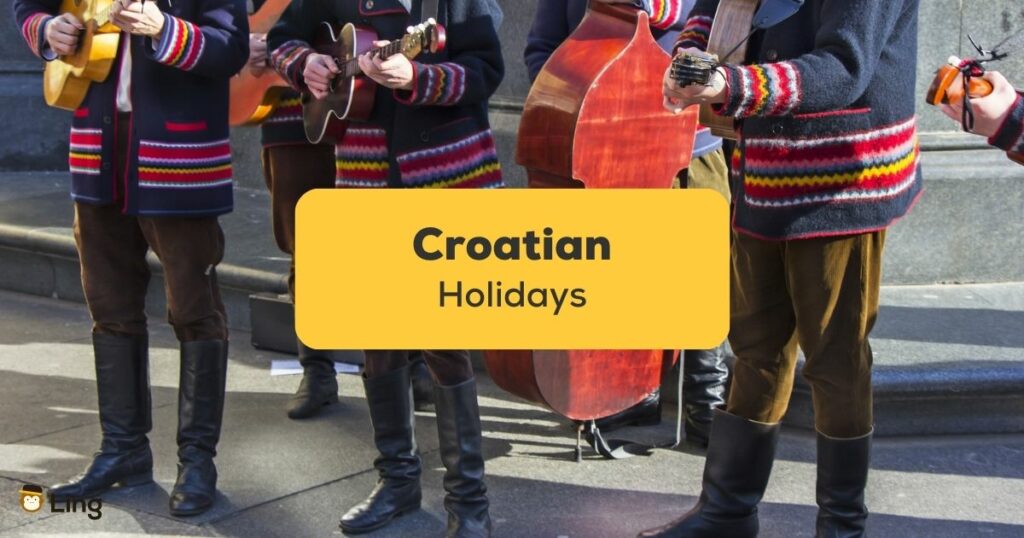Let’s dive into the vibrant and culturally diverse world of Croatia, where ancient traditions blend with modern celebrations. Tradition is a pillar of Croatian values, and you truly see that in the beautiful holidays celebrated throughout the calendar year! As you embark on your language-learning journey, let’s take a closer look at ten traditional Croatian holidays that are deeply ingrained in the country’s cultural fabric. From historical significance to mouth-watering cuisine, these celebrations offer a window into the heart and soul of Croatia and its people! Let’s begin!
History Of Christianity In Croatian Holidays
The history of Christianity has profoundly influenced Croatian national holidays, shaping their traditions and significance in the modern day. Croatia has a strong Catholic heritage, and Christianity was introduced to the region during the early Middle Ages. Over the centuries, religious holidays (like Easter, Corpus Christi, Assumption of Mary, and Christmas) have become deeply ingrained in the Croatian cultural fabric, blending with the unique local customs and practices. They serve as opportunities for spiritual reflection, community gatherings, and the preservation of age-old rituals. Through these holidays, Croatians celebrate their faith, express gratitude, and honor their religious heritage to show their appreciation of Croatian culture as well as their religious devotion and faith!
Do you want to learn more about Croatian history and culture? Check out Croatian food culture & Croatian flavors!
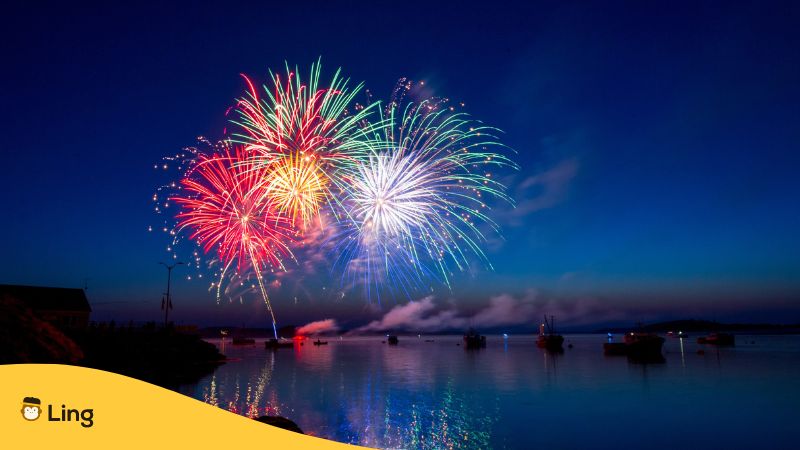
Top 10 Traditional Croatian Holidays
#1: Nova Godina (New Year’s Day)
Croatians ring in the New Year with joy and enthusiasm, and of course, with major parties and dancing! In major cities like Zagreb and Split, lively street parties fill the air with excitement. People gather in public squares, raising their glasses of šampanjac (champagne) to toast to the future while fireworks light up the sky.
Traditional delicacies like pečeni odojak (roasted pig), sarma (cabbage rolls), and krafne (Croatian doughnuts) are savored, signifying good luck and abundance for the upcoming year. “Sretna Nova godina!” (Happy New Year!) fills the air, accompanied by well-wishes for friends and family and good cheer for the year ahead.
#2: Uskrs (Easter)
Easter is an extremely cherished Christian holiday to Croatians because it symbolizes rebirth and new beginnings. Families attend church services, followed by an Easter breakfast where pogača (traditional round bread) and janjetina (lamb) are served.
Kids engage in thrilling Easter traditions for egg hunting “traženje pisanica” and then trying to keep their decorated eggs in tact with egg tapping “tucanje jajima.” All throughout these festivities, everyone is exclaiming “Sretan Uskrs!” (Happy Easter) to one another.
#3: Dan Državnosti (Statehood Day)
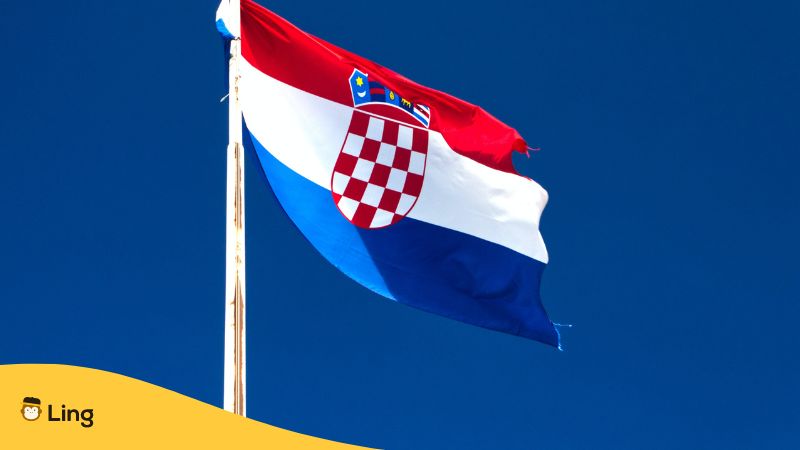
Commemorating Croatia’s declaration of independence, June 25th marks a momentous occasion for the nation. This Croatia public holiday marks the anniversary of the Declaration of Independence in 1991, so it’s pretty recent history!
Festivities include concerts, cultural events, and fireworks, with people proudly displaying their Croatian flags on a summer night. Traditional dishes such as grah (bean stew) and čobanac (shepherd’s stew) are enjoyed as a symbol of unity and national pride. People celebrate Croatia’s sovereignty, proudly greeting each other with, “Sretan Dan državnosti!” (Happy Statehood Day).
#4: Tijelovo (Corpus Christi)
Tijelovo, a Catholic holiday celebrated 60 days after Easter, holds great importance in Croatian culture. The highlight of the day is the procession known as “proštenje.” People dressed in traditional costumes walk through the streets, carrying a statue of Christ, while others sprinkle flowers and herbs along the way. Typical dishes include strukli (pastry filled with cheese) and štrudla od jabuka (apple strudel).
#5: Dan Neovisnosti (Independence Day)
Croatia’s Independence Day, celebrated on October 8th, honors the country’s liberation from Yugoslavia in 1991 (different from Statehood Day). Fireworks illuminate the night sky, and locals savor čevapi (grilled minced meat) and krafne (Croatian doughnuts) as they commemorate the country’s hard-fought independence. As you can tell, the Croatians love to celebrate their independence, as they should!
#6: Svi Sveti (All Saint’s Day)
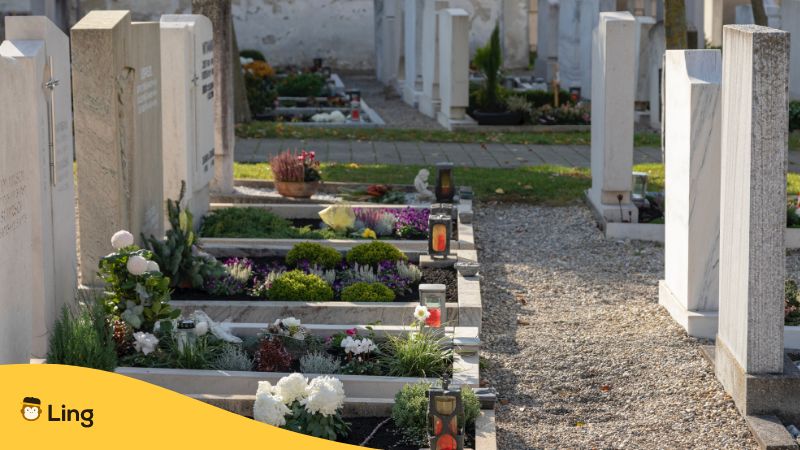
On a memorial day on November 1st, Croatians pay homage to departed loved ones. Cemeteries are adorned with candles and flowers, creating a mesmerizing sea of light. Families gather to enjoy hladetina (jellied meat) and kroštule (fried dough pastry) while reminiscing about their cherished memories of loved ones who have passed away. It’s like a remembrance day.
#7: Velika Gospa (Assumption of Mary)
On August 15th, Croatians celebrate the Assumption of Mary, a significant Christian religious event. Pilgrimages to Marian shrines, such as the one in Sinj and Marija Bistrica, are common, with believers praying for blessings and protection. Traditional treats like fritule (small doughnuts) and rozata (caramel custard) are savored during family gatherings after praying.
#8: Sveti Nikola (St. Nicholas Day)

December, like most of the Western world, is filled with lots of holidays in Croatia. December 6th brings joy and excitement as children eagerly await the arrival of St. Nicholas. Dressed as a bishop, he rewards well-behaved children with gifts, while mischievous ones might receive šiba (a small bundle of twigs). Traditional delicacies like fritule and krafne are enjoyed throughout the day, adding to the joyful and cheery atmosphere.
#9: Božić (Christmas Day)
Christmas in Croatia is a magical time filled with cherished customs and traditions. Families gather on Christmas Eve for a festive meal featuring bakalar (dried codfish) and kolači (Christmas cookies). The Yule Log is lit, and carolers known as “kolendari” sing traditional songs in exchange for treats. Midnight Mass on Christmas Eve is a cherished tradition for many Croatians as well!
#10: Sveti Stjepan (St. Stephen’s Day)
Observed on December 26th, St. Stephen’s Day is a time for relaxation and merry gatherings with friends and family. Traditional delicacies such as purica s mlincima (roast turkey with pasta) are savored, while people engage in friendly banter and playful activities to relax after all the December festivities.
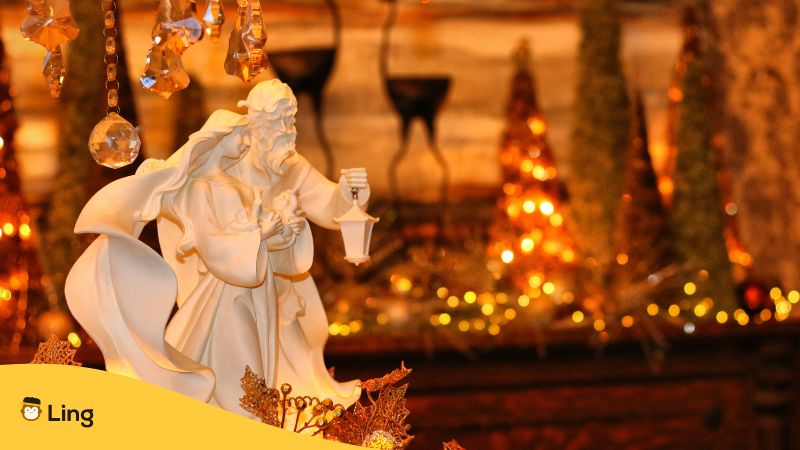
Embracing the charm of Croatian culture means immersing yourself in its traditional holidays. From the mouthwatering delights that grace the table to the heartfelt religious customs observed with loved ones, these celebrations offer a window into the Croatian way of life. As you learn the Croatian language, these holidays will provide you with a deeper understanding of the country’s rich heritage and the warm spirit of its wonderful and kind people. Sretan put! (Bon voyage!)
Learn Croatian With Ling
Want to learn more about Croatian? Download the free Ling app today from the App Store and Play Store. It is a highly researched language-learning app for a fun and personalized experience. With Ling, you’ll smash your Croatian language goals with a little hard work and practice. Aside from Croatian, there are over 60+ foreign languages to learn on Ling. Download it today!
